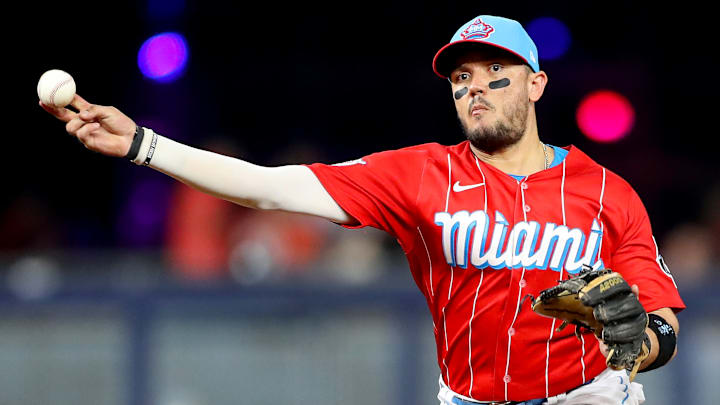All offseason, Los Angeles Dodgers fans have been under the impression that the team was working to get under the $233 million luxury tax threshold (the first tier) in order to reset the payroll and avoid escalating penalties in the coming years, presumably for their eventual pursuit of Shohei Ohtani (and other top free agents) next offseason.
The only problem? They're above that mark at the moment as they prepare for the 2023 season. Well, that's not exactly a problem because they have until the end of the year to get below the $233 mark in order to avoid a tax penalty.
The actual problem is, per Fabian Ardaya of The Athletic, that the Dodgers don't plan to get under the threshold. Wait, what? So then what was the point of avoiding the top free agents this offseason? What was the point in saving $4 million to import JD Martinez and let Justin Turner walk?
Some fans might be able to understand not paying a record-setting AAV for Justin Verlander or giving 11 years to Trea Turner, but the other penny-pinching moves that were executed to apparently put the Dodgers in a position to reset the payroll were ... all for nothing? Was it all about the Cohen Tax?
Here's what Ardaya wrote in Part 1 of his recent Dodgers mailbag:
"The Miguel Rojas trade showed they’re willing to take on more salary now that they’re over, and my understanding is the Dodgers aren’t planning to trade off the big-league roster to shed salary and get back under the threshold."Fabian Ardaya of The Athletic
◽️ What are the impacts of Los Angeles' luxury tax situation?
— The Athletic MLB (@TheAthleticMLB) January 23, 2023
◽️ Will Tony Gonsolin be ready for Opening Day?
◽️ How likely is a trade for Bryan Reynolds?
Readers asked and @FabianArdaya answered in his latest Dodgers mailbag:https://t.co/YsnQUHAowq
The Dodgers aren't getting under the luxury tax threshold. What?
It was apparent the Dodgers were waiting on Trevor Bauer's suspension appeal to dictate how they would move forward, but reports suggested they were bracing for the worst, meaning they would have to pay him an amount that would push them closer to the $233 million mark. That seemed to explain the team non-tendering Cody Bellinger and rejecting JT's team option, in addition to the lack of activity for the first couple months of the offseason.
But then came the trade for Rojas, which saw the team inherit $5 million in extra salary, putting the payroll around ~$236 million (that includes the $22.5 million owed to Bauer). If what Ardaya said is true and the Dodgers don't plan to trade off the MLB roster to lower that figure, then there's no way they'll be resetting the tax penalties for 2024 and beyond.
So what were the Dodgers trying to avoid? The 12% surcharge for payrolls in excess of $253 million? That still left them plenty of room to keep Turner and Bellinger! Or a $20 million AAV free agent signing instead of a Rojas trade.
Either way, if the Dodgers are over the $233 million mark, they will be paying a 50% surcharge on every dollar spent beyond that number. We're just confused how they're justifying paying all of that with a trade for Rojas, who's expected to be nothing more than a defensive replacement.
NEXT STORY: Justin Turner avoids questions about Dodgers departure
